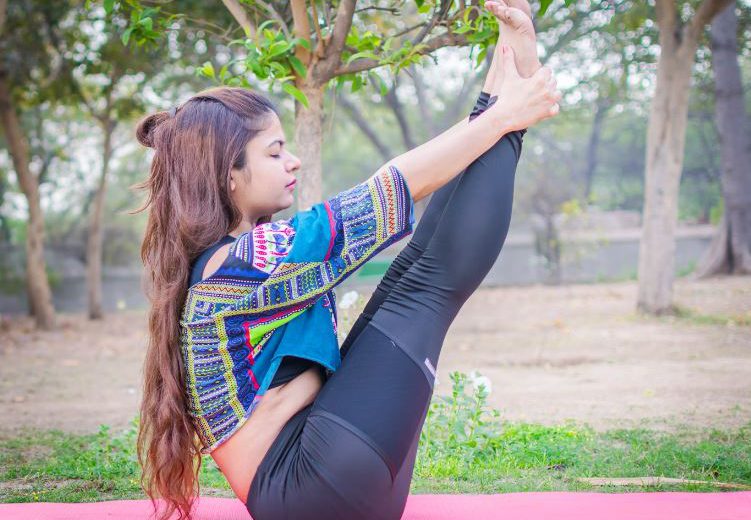Yoga is not just for adults; it offers significant benefits for children as well. In today’s fast-paced world, children are often exposed to stress, pressure from academics, and constant distractions. Incorporating yoga into a child’s routine can provide a calming and centering activity that not only nurtures physical health but also fosters emotional well-being and mental clarity. With the right approach, yoga for kids can be fun, engaging, and transformative.
In this article, we will explore the numerous benefits of yoga for kids, including its impact on physical health, mental development, emotional regulation, and how it helps cultivate important life skills.
1. Improves Physical Health and Flexibility
One of the most obvious benefits of yoga for kids is its impact on physical health. Yoga involves stretching, balancing, and strengthening exercises that promote flexibility, coordination, and body awareness. Practicing poses like Downward Dog, Tree Pose, and Warrior Pose can help kids develop flexibility and build muscle strength in a safe and enjoyable way.
Regular yoga practice also supports healthy posture, joint mobility, and bone health, which are particularly important during the growing years. The gentle stretching movements in yoga can help kids improve their balance and coordination, making them more agile and reducing the risk of injuries in other physical activities like sports.
2. Enhances Concentration and Focus
In today’s digital age, many kids struggle with attention span and focus due to constant exposure to screens and fast-paced entertainment. Yoga can be a powerful tool in helping children improve concentration and mindfulness. The practice of holding poses and focusing on breathing helps kids center their attention and stay present in the moment.
Through yoga, children learn how to focus their minds on specific tasks, which can have a positive effect on their academic performance. Studies have shown that kids who practice yoga are better able to focus in class, complete tasks more efficiently, and have improved memory retention.
3. Reduces Stress and Anxiety
Children, like adults, can experience stress and anxiety. Yoga offers a natural way to manage stress by teaching kids relaxation techniques, such as deep breathing, guided imagery, and mindfulness. Through practices like pranayama (breathing exercises) and meditation, children learn how to calm their nervous system and reduce feelings of tension.
When children feel overwhelmed by schoolwork or social pressures, yoga provides them with practical tools to regulate their emotions. By learning how to breathe deeply and relax their body, kids can experience reduced anxiety levels and improved emotional resilience.
4. Boosts Emotional Intelligence and Self-Esteem
Yoga is a holistic practice that helps children connect with their emotions and develop emotional intelligence. During yoga, children are encouraged to be mindful of how they feel physically and emotionally, helping them recognize and process their emotions in a healthy way. This self-awareness fosters a deeper understanding of their feelings and reactions to different situations.
Yoga also promotes self-confidence and self-esteem. As children master new poses and notice improvements in their practice, they gain a sense of accomplishment and pride. This can have a positive impact on how they view themselves, both on and off the mat.
5. Encourages Mindfulness and Inner Calm
Mindfulness is a key component of yoga, and teaching kids to be mindful from a young age has lasting benefits. Yoga helps kids become aware of their thoughts and feelings without judgment. This heightened awareness allows them to approach challenges with a calmer mindset and avoid acting impulsively.
Incorporating mindfulness practices, such as body scans or focusing on the breath, can help kids develop coping strategies for dealing with difficult emotions like anger or sadness. By learning to pause and observe their thoughts, children can better manage stress and cultivate a sense of inner peace.
6. Improves Social Skills and Empathy
Yoga often includes partner or group activities that encourage cooperation and connection. These interactive elements help kids improve their social skills by working together, taking turns, and communicating effectively with their peers. Partner poses, for example, teach children the importance of teamwork, trust, and mutual respect.
Yoga also fosters empathy and compassion. Many yoga practices incorporate values like kindness, gratitude, and respect for others. By learning these principles on the mat, kids are more likely to carry them into their everyday interactions, creating more harmonious relationships with family, friends, and classmates.
7. Promotes Healthy Habits
Introducing yoga to children at a young age encourages them to develop healthy lifestyle habits that can last a lifetime. Kids who practice yoga are more likely to have a positive relationship with physical activity and mindfulness, which can lead to a greater appreciation for overall well-being.
Yoga teaches children that taking care of their bodies and minds is important, helping them make healthier choices in the long term. Whether it’s being more active, eating mindfully, or practicing relaxation techniques, yoga sets a foundation for a balanced lifestyle.
8. Improves Sleep Quality
Good sleep is essential for growing children, and yoga can play a role in improving sleep patterns. The relaxation techniques and calming nature of yoga help kids wind down before bedtime. Gentle poses combined with deep breathing can prepare the body and mind for restful sleep, which is particularly helpful for kids who have trouble falling asleep or staying asleep due to anxiety or hyperactivity.
Restorative yoga practices and gentle stretches in the evening can relax tense muscles and calm the mind, promoting deeper, more restorative sleep for children.
9. Builds Resilience and Coping Skills
Life is full of challenges, and yoga equips kids with the tools to build resilience and cope with difficult situations. By practicing mindfulness and relaxation techniques, children learn how to navigate stressful moments with greater ease. Yoga teaches them that challenges, whether physical or emotional, can be approached with patience, perseverance, and calmness.
When children are faced with setbacks—whether in their practice or in life—yoga encourages them to stay grounded and compassionate toward themselves, building a strong foundation of resilience.
10. Fosters Creativity and Self-Expression
Yoga is also a great way to encourage creativity and self-expression in kids. Many yoga classes for children incorporate storytelling, games, and imaginative activities that allow kids to express themselves freely. Poses inspired by animals, nature, and the world around them can spark a child’s imagination and make yoga a fun, engaging experience.
Creative movement through yoga helps kids feel empowered in their bodies and minds, giving them a safe space to explore their individuality and develop a healthy sense of self-expression.
Conclusion: The Holistic Benefits of Yoga for Kids
Incorporating yoga into a child’s life offers a wealth of benefits that go beyond just physical health. From improved concentration and reduced stress to emotional intelligence and resilience, yoga provides children with lifelong tools for navigating the complexities of growing up. Whether practiced at home or in a group setting, yoga fosters a sense of balance, calm, and well-being that nurtures both the body and mind.
As parents, teachers, or caregivers, encouraging children to practice yoga can help them develop into more mindful, resilient, and confident individuals. Yoga for kids is a fun and transformative practice that cultivates important life skills in a joyful and nurturing environment.

